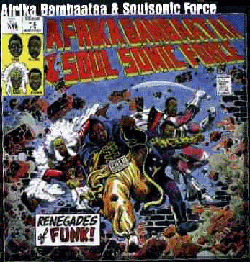 As pop music in Korea continues to spread worldwide, it’s intriguing to note that K-pop’s history is heavily tied to the country’s connection to US hip-hop, not the obligatory rap breaks in K-pop songs that have become almost farcical in construction and timing. I’m talking about honest-to-goodness hip-hop, the likes of which introduced the world at large to arguably South Korea’s most important hip-hop artist, Tiger JK. Hip-hop’s history in South Korea is so intrinsically tied to its American predecessor, it could be argued the two are next of kin.
As pop music in Korea continues to spread worldwide, it’s intriguing to note that K-pop’s history is heavily tied to the country’s connection to US hip-hop, not the obligatory rap breaks in K-pop songs that have become almost farcical in construction and timing. I’m talking about honest-to-goodness hip-hop, the likes of which introduced the world at large to arguably South Korea’s most important hip-hop artist, Tiger JK. Hip-hop’s history in South Korea is so intrinsically tied to its American predecessor, it could be argued the two are next of kin.
Hip-hop’s history in the US is a complex one. It all began with the storytelling circles throughout Africa which migrated to America with the first slaves. Fast forward to the South Bronx in the 1970s. The first MCs were literally just that—masters of ceremony that would get on the microphone and get the audience hyped, the originator being Kool DJ Herc. Taking from its African roots and utilizing call-and-response, Afrika Bambaataa introduced the world to his Zulu Nation and changed hip-hop’s face forever.
While the history of hip-hop in South Korea isn’t exactly congruent to the US, the movement has definite parallels insofar as how styles have evolved over time. The first real splash of hip-hop to impact South Korea was with boy group Seo Taiji and the Boys. The group was revolutionary, essentially transforming the landscape of pop music in South Korea forever. They brought an experimental sound of rock (from Seo’s background as metal group Sinawe’s bass player) and dance. Just like Arrested Development in the States, the group had a very blunt socio-political message. Their single “Nan Arayo” springboarded hip-hop into the limelight in the ’90s and started a trend toward making music that was harder-edged, providing the template for what we know today as K-pop. Cho Chung-un of The Korea Herald writes:
[youtube http://youtu.be/h3DWZijTbVY]“[Seo Taiji and Boys]’s music and explosive popularity among younger listeners pushed the country’s music industry to put more focus on teenagers…With the group achieving enormous success in the country’s music industry, entertainment agencies started to nurture young musicians such as H.O.T., Sechs Kies, Fin.K.L., and Shinwha. Korean pop songs also become less sentimental, aiming for a cooler edge to suit the musical tastes of the younger demographic.”
Throughout the ’90s in the States, more groups like Arrested Development, A Tribe Called Quest, and Digable Planets made music that hearkened back to hip-hop’s roots in jazz and the blues. Thusly, South Korean artists continued to hone their skills and patterned their sound after the most critically successful artists of the time. We saw groups like Uptown (featuring the early vocal and lyrical stylings of Tasha a.k.a. Yoon Mi-rae), The Quiett, and Dynamic Duo bring jazz and R&B into their style while maintaining a deeper message at large.
[soundcloud url=”https://api.soundcloud.com/tracks/38607129″ params=”color=ff5500&auto_play=false&hide_related=false&show_artwork=true” width=”100%” height=”166″ iframe=”true” /]Both male and female MCs started to rewrite hip-hop’s scope in South Korea. Just as Salt-n-Pepa, MC Lyte, and Lisa “Left Eye” Lopez before them, women have made an impression on hip-hop in South Korea with the likes of X’ Girlz, GilMe, and Steady B. It’s unfortunate that at this stage in hip-hop’s development in the country, with the exception of legend Yoon Mi-rae, the most well-known female rappers are in idol groups. But the talent is no less apparent, the lyrics and style no less powerful than their more visible male peers.
[youtube http://youtu.be/8KvLnMKo7RQ]Hip-hop as a genre is always in transition. That couldn’t be any truer than in South Korea, where the genre is still relatively new—compared to the lengthy history of the genre in the States. Now the sound has pushed the K-pop scene even further. Groups like Big Bang toe the line between the genres, rappers G-Dragon and T.O.P providing the group’s hard edge and coupling it with flamboyant visuals—sort of if Li’l Wayne and Andre 3000 somehow managed to both impregnate Björk. Thus the journey of the genre in South Korea. Hip-hop has been taken to new levels, always progressing, always evolving. The relationship between hip-hop in the US and South Korea is rich and layered—a relationship that will continue to evolve as the genre itself.
(LGEPR, ZuluNation.com, The Korea Herald, MBC, YouTube[1][2], Soundcloud)



